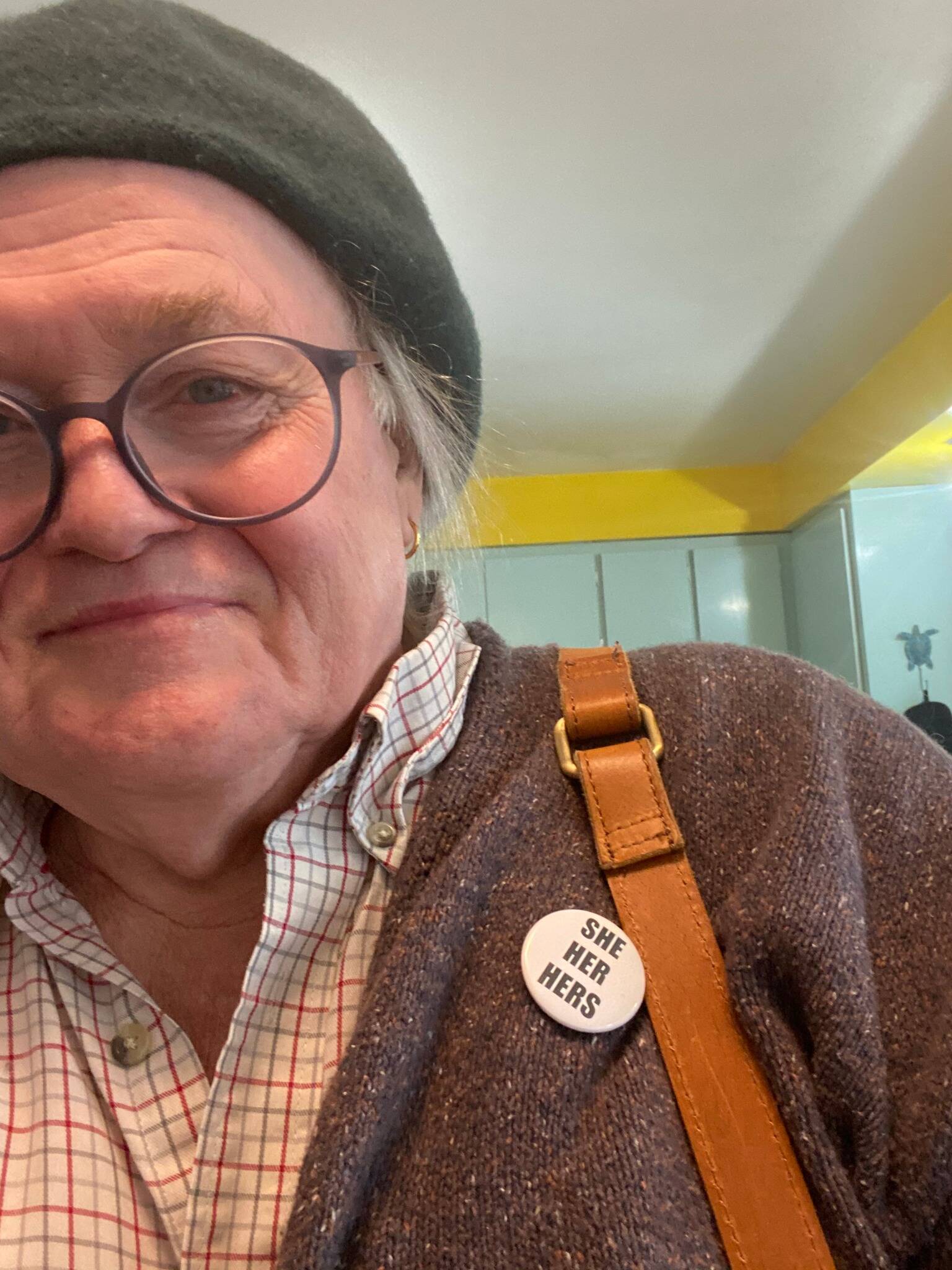I’m grateful for the encouragement these columns have elicited from family and friends, but most humbling of all have been responses from strangers. People I don’t know, recognizing me from my photo in the paper, have stopped me on the street or at the store or at the pool to introduce themselves and thank me for writing the column.
One reader noted that it’s the first thing she looks for in the paper every other Sunday, and one confided that it’s the only column she reads. One lovely reader insisted that I not stop writing them.
This has been happening a lot lately, and I can’t tell you how much these kind words mean to me. This is the payoff. As I noted in my very first Coming Out column, there’s something validating about going public, about holding this experience up to the light where we can look at it together.
Reader, the experience would not seem quite as real without you.
And I am hopeful too that these columns lend some comfort and support to others questioning our culture’s vacuous presumptions about gender.
But there’s an odd thing about these strangers who have approached me about the columns: they have all been women. Not a single man has come up to me in public to thank me for the columns.
To be sure, I have supportive male friends, some of whom were the earliest people I came out to and who have been wonderfully encouraging. And I know there must be some men out there, strangers who are reading this now, who also have issues with how our culture imagines gender and who appreciate what I’m trying to accomplish.
But so far, not one of them has approached me to say so. Why not?
I think the situation is analogous to a meme I’ve seen on the web lately. A lot of local folks, men and women, are participating in the Ironman Alaska race here on Sunday, and the meme jokingly wonders why the competition isn’t called the Fe-male competition. Fe, of course, is the chemical symbol for Iron, so strictly speaking, the terms Ironman and Fe-male are synonymous. But you can imagine how few men would show up for a Fe-male competition.
(Yeah, okay, I’d be there, but I mean real men, manly men, the kind you hear at the gym grunting a little histrionically under the weights in the weight room.)
(You know, the dumbbells.)
I’m sure there are male readers out there who question our conventions of masculinity, but who are nevertheless apprehensive about acknowledging it publicly, as if it would compromise their own masculinity. There’s that reticence to validate another man’s finding greater value in traits and behaviors that our culture labels as feminine and derides as effeminate and diminishing in a male.
Traits such as being more emotional: Aristotle believed women inferior because they are “more easily moved to tears … more prone to despondency.” From my experience with hormones, I can tell you that, indeed, elevated levels of estrogen make you more emotional — not the outward display, but the inner experience of emotions. I’ve always been on the emotional side, but now my emotions seem more palpable, stronger, and it takes a little more effort to wrestle them under control.
I’m not talking about emotionalism, that creepy phenomenon when guys get all weepy in order to show how sensitive they are.
Years ago I went on a weekend retreat for Christian men, and during the day some men gave talks about their experiences, and most of these talks were pretty much the same: guys reflecting unreflectively and sobbing over various, mostly self-inflicted traumas.
But one talk was different. My friend the late Thomas Weiss, a Catholic priest, formerly pastor at Juneau’s Cathedral of the Nativity, spoke about the most horrifying sexual abuse he suffered as a young man from an older priest. But he spoke without a single tear or whimper or grimace. Throughout his talk, Father Thomas remained his typically light-hearted self, with a cheerful countenance and demeanor that betrayed a silent fortitude that was genuinely edifying.
“Harden not your hearts” — I think that was Father Thomas’s favorite line from scripture. You don’t have to show off your emotions, but you do have to feel them. And learn how to manage them.
The notion that a more emotional response to the world is inferior to how a man experiences the world is what writer Julia Serano calls “oppositional sexism”; if we think of men and women as opposites, then we tend to attribute opposites to each that seem to confirm a woman’s inferiority: if men are strong, women must be weak; if men are rational, women must be irrational, i.e., emotional, etc.
I was going to say that acknowledging the greater value of expressions our culture labels as feminine does not compromise a man’s masculinity. But now that I think of it, maybe it does. Maybe that’s the point: men need to find the courage to reflect more critically on how our culture defines masculinity.
Simone de Beauvoir long ago noted that you’re not born a woman, you become one. The same is true for being a man.
Feminism implores us to raise our daughters without the baggage of gender conventions, to raise them to be strong and honest and courageous. It’s time we start raising our sons the same way.
• Jane Hale spent her first 69 years writing as Jim. She is a longtime Juneau resident. “Coming Out” is a biweekly column. It appears on the Empire’s Neighbors page.

